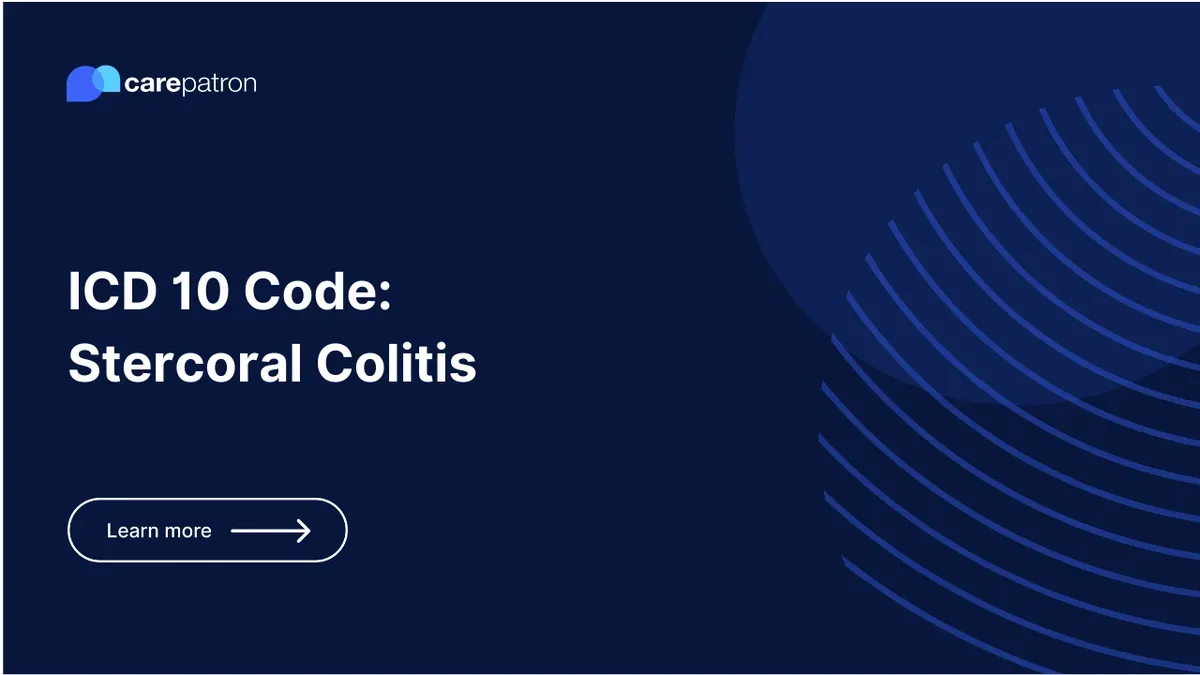
Stercoral Colitis ICD-10-CM Codes
Uncover the specifics of the ICDs for Stercoral Coliti. Learn more about this condition's diagnosis, clinical descriptions, and billing.
Use Code
Commonly asked questions
The condition is more common in individuals with chronic constipation, those with a diminished capacity for bowel motility, or older people.
Treatment involves the removal of fecaloma, which often requires hospital admission and sometimes surgical intervention. The inflammation of the colon is also addressed with appropriate medical care.
If left untreated, Stercoral Colitis can lead to severe complications, including colonic perforation, which can cause peritonitis and sepsis, both life-threatening conditions.
EHR and practice management software
Get started for free
*No credit card required
Free
$0/usd
Unlimited clients
Telehealth
1GB of storage
Client portal text
Automated billing and online payments
